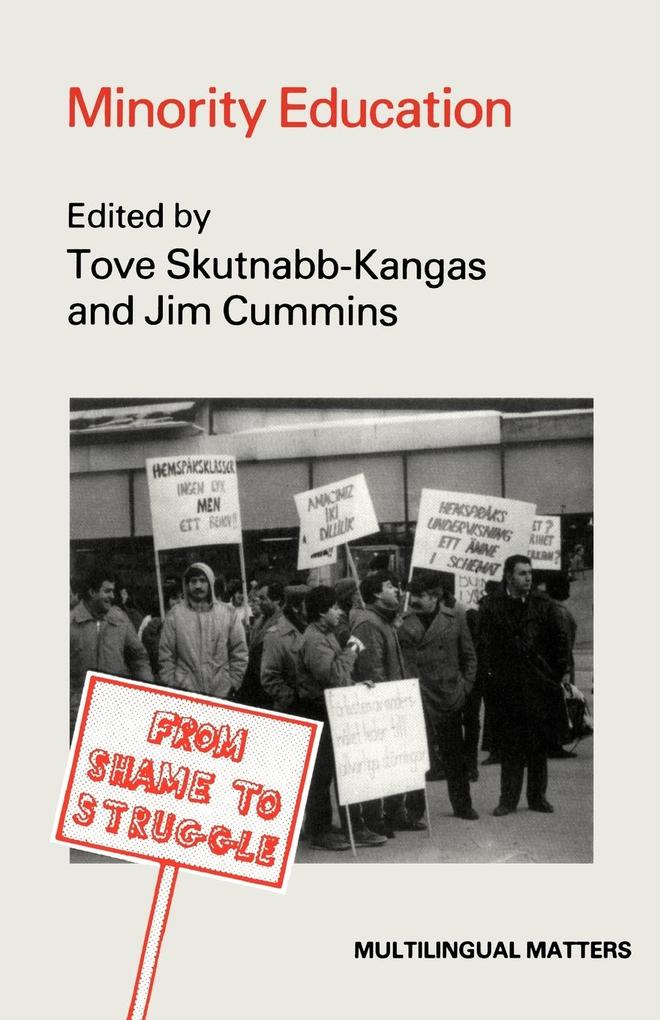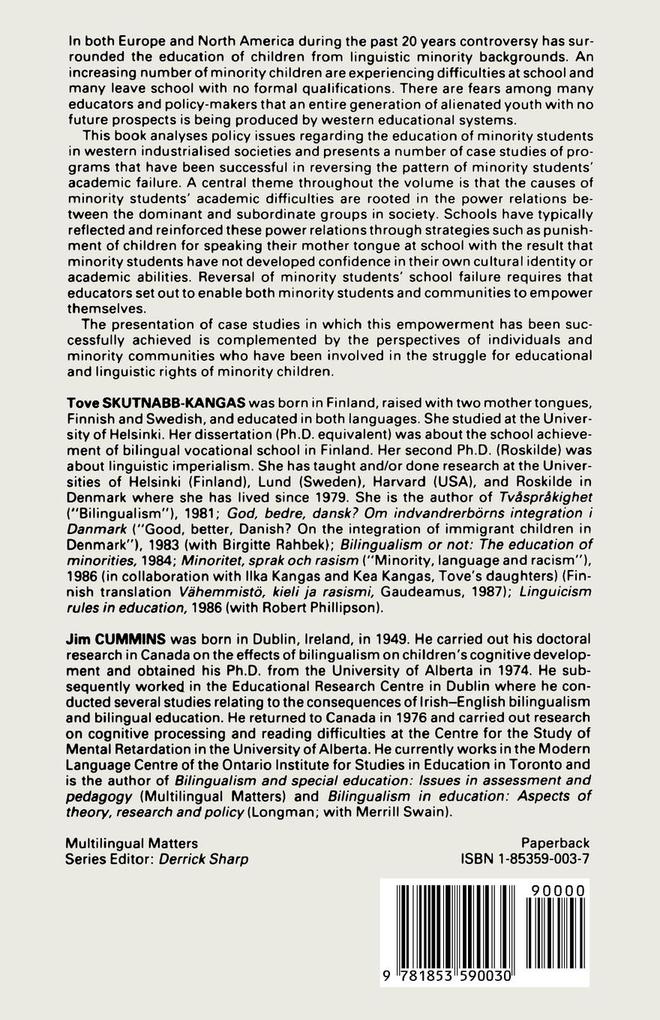This book analyses policy issues regarding the education of minority students in western industrialised societies and presents a number of case studies of programs that have been successful in reversing the pattern of minority students' academic failure.
Inhaltsverzeichnis
Part 1 Sociopolitical analyses: multilingualism and the education of minority children, Tove Skutnabb-Kangas; language policy and language rights in the United States - issues in bilingualism, Eduardo Hernandez-Chavez; the language education of immigrant workers' children in The Netherlands, Rene Appel; the jewel in the crown of the Modern Prince - the new approach to bilingualism in multicultural education in England, Arturo Tosi; active bilingualism - the Swedish goal for immigrant children's language instruction, Gunnar Tingbjorn; from multicultural to anti-racist education - an analysis of programmes and policies in Ontario, Jim Cummins. Part 2 Experiential perspectives: mother tongue and identity, Antti Jalava; poems; living with two languages, Jukka Kalasniemi; returning to Sami identity, Johannes Marainen. Part 3 Community struggles for educational rights: rights and claims of indigenous people - education and the reclaiming of identity - the case of the Canadian natives, the Sami and Australian Aborigines, Deirdre F.Jordan; the Pajaro Valley experience - working with Spanish-speaking parents to develop children's reading and writing skills through the use of children's literature, Alma Flor Ada; Finnish children in Sweden strike for better education, Tuula Honkala et al; resource power and autonomy through discourse in conflict - a Finnish migrant school strike in Sweden, Tove Skutnabb-Kangas; parents, schools and racism - bilingual education in a Northern California town, Jan Curtis; the Carpinteria language minority student experience - from theory to practice to success, S.Jim Campos and H.Robert Keatinge; beyond cultural inclusion - an Inuit example of indigenous educational development, Arlene Stairs; nine years of Finnish-medium education in Sweden - what happens afterwards? - the education of minority children in Botkyrka, Tom Hagman and Jouko Lahdenpera. Part 4 The global context: linguicism - structures and ideologies in linguistic imperialism, Robert Phillipson; racism, ethnicism and etharchy or not? - the principles of progressive control and transformative change, Chris Mullard; monolingual myopia and the petals of the Indian lotus - do many languages divide or unite a nation?, Debi Prasanna Pattanayak; concluding remarks - language for empowerment, Tove Skutnabb-Kangas and Jim Cummins.














